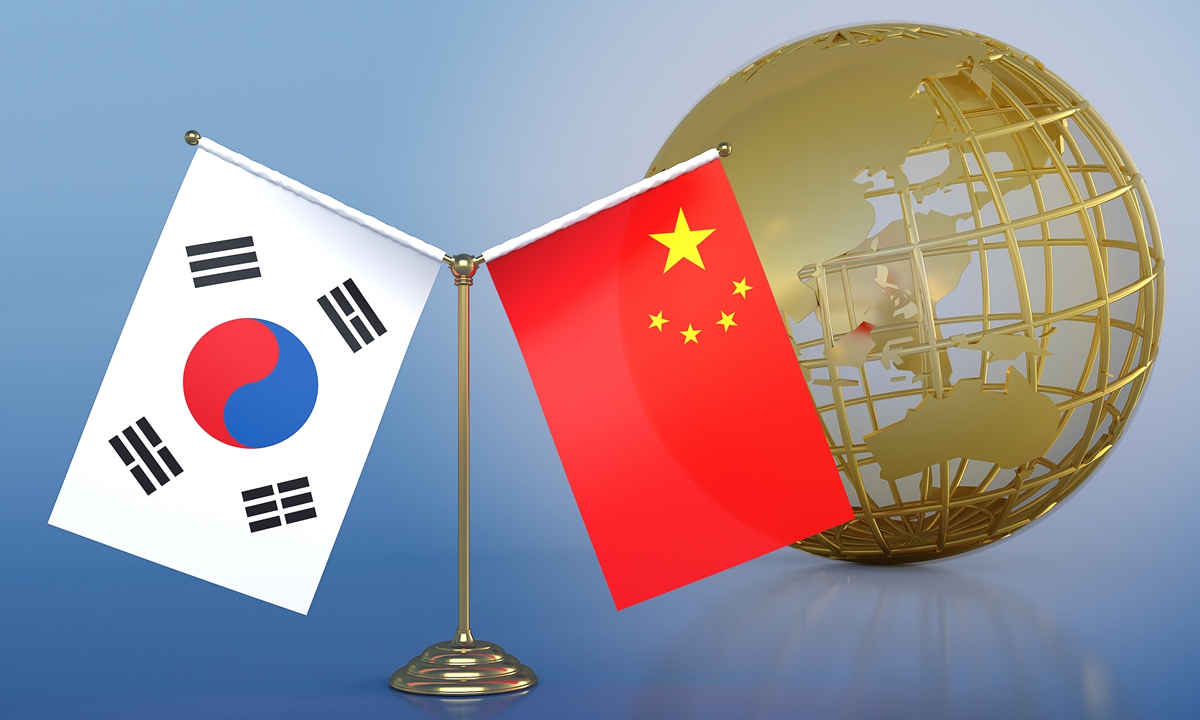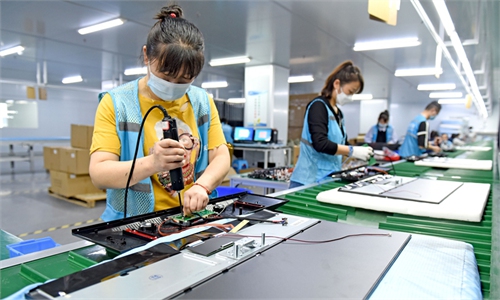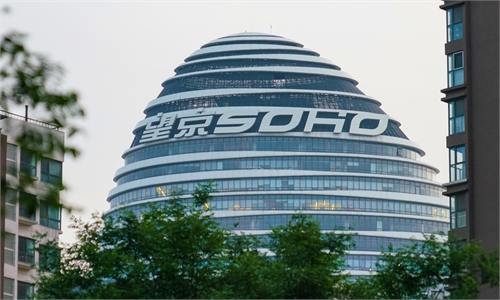
China South Korea Photo:VCG
Yoon Suk-yeol was sworn as South Korea's new president on Tuesday. Since observers generally expect Yoon to face a difficult balancing act between China and the US, how the transition of power in South Korea will affect China-South Korea relations has become the focus of attention in the Asia-Pacific region.
While it is undoubtedly encouraging and reassuring to see Yoon's key policy outline made it clear that South Korea needs to maintain and develop cooperative relations with China, uncertainty remains. If anything, the US' seemingly unending geopolitical schemes in the region are likely to be a major destabilizing factor for economic and trade cooperation between China and South Korea.
US President Joe Biden is scheduled to visit South Korea and Japan later this month, which is expected to see the formal launch of the US Indo-Pacific Economic Framework (IPEF), Japan's Ambassador to the US said on Monday. South Korea and Japan are both among the first round of countries that may sign up with the US to negotiate agreements under the IPEF initiative, according Reuters.
While the Biden administration defines the IPEF as a "new partnership" that will promote high-quality trade and improve supply chain resiliency, among other issues, the rhetoric does not hide the fact that it is about roping in allies to form small economic circles in Asia-Pacific that is aimed at targeting and squeezing China out of the supply chains.
US Commerce Secretary Gina Raimondo has said the IPEF will harmonize export controls to limit sensitive products exported to China, while US Trade Representative Katherine Tai described the IPEF as an arrangement separate from China.
Fundamentally speaking, the IPEF is merely a patch on the Biden administration's Indo-Pacific Strategy, which has long been seen as lacking economic cooperation, so its ultimate purpose is to create division in the region and undermine cooperation, not facilitating cooperation.
Only by sowing disorder can the US maintain its dominant influence in Asia-Pacific in terms of economic, political and security fields and ensure the region continues to serve its interests in preserving its global hegemony.
If the US wants to make China-South Korea relations an "accessory" to South Korea-US relations, it will inevitably harm the national interests of South Korea and impair its economic development momentum.
While South Korea is dependent on the US military support when it comes to the security issues, on the economic front, it is also impossible for the country to seek a "decoupling" from China.
South Korea's economic development is closely intertwined with that of China, its largest economic and trading partner, which accounts for almost 25 percent of the former's trade. Therefore, how to adhere to South Korea's independent path and protect its economy from geopolitical games will test the political wisdom of the Yoon administration.
It should be noted that we have no objection to normal economic cooperation between the US and South Korea, but such cooperation must not harm China's national interests. Any attempt to undermine Chinese interests will seriously hurt China-South Korea economic and trade ties and could even provoke countermeasures from China.
From the economic and trade point of view, the best way for China-South Korea economic relations to resist the interference of external forces is to strengthen regional cooperation, especially cooperation among China, South Korea and Japan. For a long time, despite close economic and trade ties among the three countries, historical issues and tensions have restricted the process of regional economic integration in East Asia.
Nevertheless, the Regional Comprehensive Economic Partnership (RCEP), which took effect earlier this year, may provide a new opportunity for regional countries to deepen economic cooperation. If anything, the three can take this opportunity to speed up the negotiations for the China-Japan-South Korea free trade agreement to build a higher level of free trade zone on the basis of the RCEP.
Regardless of the structural trade problems or the security issues, only under the cooperation framework or through cooperation can all parties advance toward a direction that benefits all.



